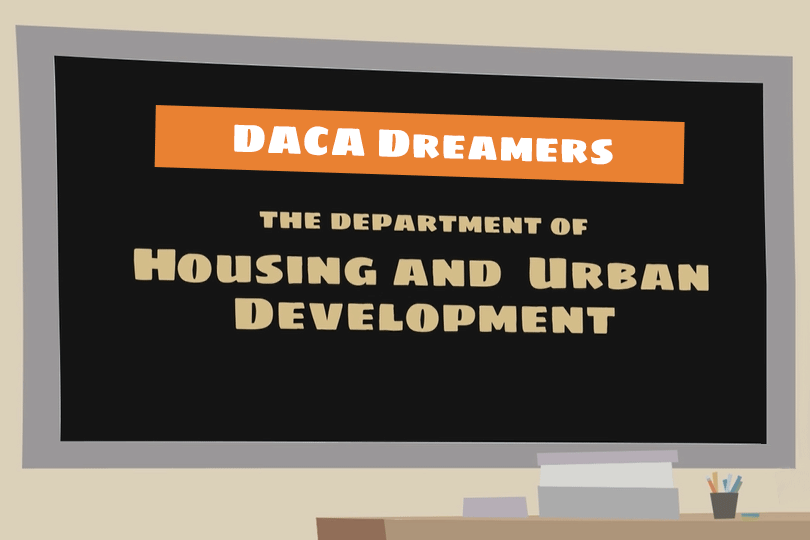FHA Loans for Dreamers
May 8, 2021
A Hurdle for Dreamers
Prior to the waiver from the Secretary of HUD, DACA participants were unable to apply for FHA loans because of the language in place. Mortgages backed by the FHA were only available to “lawful residents” of the U.S. The term was established before DACA was put in place, which is why it doesn’t cover Dreamer status. This is what lead to Dreamers being unable to apply for government-backed mortgages. In fact, it was made clear in 2019 that the FHA would not insure home loans made to DACA status recipients.
Why This Matters
The exclusion of Dreamers from government-insured home loans created a hurdle for many potential homeowners. Most Dreamers are college-educated and employed. Many of them have worked to secure the American Dream of homeownership. While they have the finances in place to apply for a mortgage, the system in place did not grant them access to credit, keeping many of them from accruing wealth through real estate investments and obtaining proper housing.
With the new waiver in place, they have access to affordable FHA home loans designed for first-time homebuyers.
The Same FHA Guidelines
There is no discrepancy in the FHA’s eligibility requirements when it comes to DACA status holders applying for an FHA-backed mortgage. They must meet all the same criteria:
The home being purchased must be used as the borrower’s primary residence, and not serve as an investment property. Borrowers require a Social Security Number or Tax Identification Number to apply, except for individuals employed by the World Bank, a foreign embassy, or similar employer identified by HUD. They must be deemed eligible to work in the U.S., with an Employment Authorization Document issued by the USCIS. While there is no income check, all FHA applicants must have an established employment history of salaried jobs
In short, a Dreamer must satisfy the same guidelines, terms and conditions as those for U.S. citizens.
------------------------------
RELATED VIDEOS:
There's a Difference Between APR and Interest Rates
Choose Your Mortgage Lender Carefully
Getting Started With Your FHA Loan Application

FHA Loan Articles
January 22, 2025Consider this scenario: you've been in your home for five years or more and you've likely built up a significant amount of equity, and now you might be wondering how to put that equity to work for you. Whether you're dreaming of a major renovation, need to consolidate debt, or want to help a child with college tuition, you have options. Two choices are an FHA cash-out refinance and a home equity line of credit (HELOC).
January 20, 2025The FHA Streamline Refinance offers a refinance option for those who don't want to cash in on their property's equity but instead want a lower payment or interest rate or who need to get out of an adjustable-rate mortgage. This streamlined program, designed specifically for those already in an FHA-insured mortgage, simplifies the refinancing process with fewer requirements and faster approval times depending on the transaction.
January 16, 2025Want to buy a home and thinking about getting an FHA loan? FHA loans are a great way to make homeownership happen, especially if you're a first-time buyer or don't have perfect credit. But you might wonder, "Can I get more than one FHA loan?"
The short answer is, it's tricky. The FHA itself doesn't say no automatically to having more than one loan. But there's a caveat. FHA loans are about helping you buy a place to live in – your main home base. Because of this, and a few other things, getting multiple FHA loans isn't easy.
January 15, 2025Buying a condo with an FHA loan is an option some don’t consider initially, but it’s worth adding to your list of potential property types. FHA loans for condo units traditionally require condo projects to be on or added to the FHA-approved list. Still, changes in policy over the years allow borrowers to apply for FHA loans on condo units in projects not on the list on a case-by-case basis.
December 30, 2024When applying for an FHA loan, lenders will consider more than just your credit scores and history. They also look at other factors affecting your risk profile and the interest rate they offer you.
One factor is occupancy type. For FHA loans, this is straightforward because these loans require owner occupancy. Investment properties aren't eligible. While conventional loans may have different rates for primary residences, second homes, and investment properties, this isn't a concern with FHA loans.







